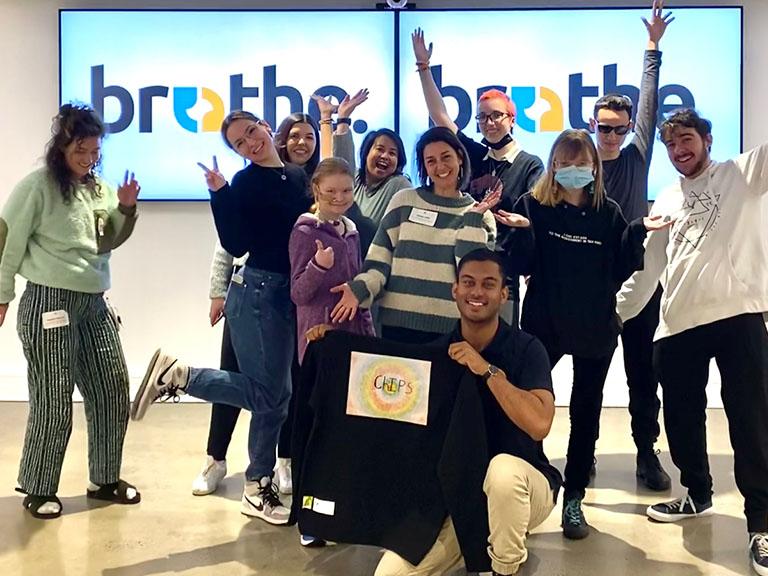Transition is a process and not a single event. To help plan and prepare for transition, local transition processes should be discussed as early as possible.
Developmentally appropriate education on transition and self-management needs to be undertaken with the young person and their carer. If it is not already underway, planning needs to start when the young person turns 14. This is especially important if there is an unclear transition pathway for the young person.
To plan transition, establish links with the young person’s general practitioner (GP) or help the young person to find a GP. It is also important to:
- encourage clinicians, young people, family and carers to talk about transition at each appointment or interaction to normalise the process
- where appropriate, young people should be referred to a specialist transition service
- ensure accessible information appropriate to the different stages of transition is available in electronic and hard copy. This should cover the differences between paediatric and adult health services, the transition pathway and process, and transition checklists
- organise transition education sessions through Sydney Children’s Hospital Network Trapeze Service and the ACI Transition Care Service for young people, carers and clinicians.
Also note that early planning is crucial for items such as medications being supplied under compassionate care, special Pharmaceutical Benefits Scheme approval or clinical trials.
The conversation definitely needs to start sooner rather than later. Families need information about other specialists and who might be the best fit for them. You need to find someone that you feel comfortable with. Delia K, mother of an 18-year-old*
Measures
System and service measures
- All young people aged 14 years and over with chronic conditions are identified and flagged for transition planning.
- Referrals are made (where appropriate) and tracked to specialist or transition services.
- Education sessions are available to individuals or groups.
- Transition resources are available in paper and electronic format with accessibility options.
- The transition readiness checklist is completed once the young person is identified as requiring transition.
- Aboriginal status is recorded and appropriate services are engaged, for example Aboriginal liaison officers and Aboriginal Medical Services.
- Translation services are available for those requiring it, as well as access to multicultural health services as needed.
- Access Out of Home Care Health Pathway Program is available.
Patient and consumer measures
- Pre- and post-education questionnaires.
Resources
- Transition fact sheets
- Transition readiness checklist
- The Trapeze service runs regular webinars to help young people and carers start thinking about transition.

References
- de Beaufort C, Jarosz-Chobot P, Frank M, et al. Transition from pediatric to adult diabetes care: smooth or slippery? Pediatr Diabetes. 2010;11(1):24-7. DOI: 10.1111/j.1399-5448.2009.00524.x
- Foster HE, Minden K, Clemente D, et al. EULAR/PReS standards and recommendations for the transitional care of young people with juvenile-onset rheumatic diseases. Ann Rheum Dis. 2017;76(4):639-46. DOI: 10.1136/annrheumdis-2016-210112
- Kime N, Bagnall A, Day R. Systematic review of transition models for young people with long-term conditions: A report for NHS Diabetes. Project Report. 2013.
- McCann L, Kearney N, Wengström Y. "It's just going to a new hospital … that's it." Or is it? An experiential perspective on moving from pediatric to adult cancer services. Cancer Nurs. 2014;37(5):E23-31. DOI: 10.1097/NCC.0b013e3182a40f99
- Moceri P, Goossens E, Hascoet S, et al. From adolescents to adults with congenital heart disease: the role of transition. Eur J Pediatr. 2015;174(7):847-54. DOI: 10.1007/s00431-015-2557-x
- Nieboer AP, Cramm JM, Sonneveld HM, et al. Reducing bottlenecks: professionals' and adolescents' experiences with transitional care delivery. BMC Health Serv Res. 2014;14:47. DOI: 10.1186/1472-6963-14-47
- Pacaud D, Yale J-F. Exploring a black hole: Transition from paediatric to adult care services for youth with diabetes. Paediatr Child Health. 2005;10(1):31-4. DOI: 10.1093/pch/10.1.31
- Sawyer SM, Azzopardi PS, Wickremarathne D, et al. The age of adolescence. Lancet Child Adolesc Health. 2018 Mar;2(3):223-8. DOI: 10.1016/s2352-4642(18)30022-1
- Suris JC, Akre C. Key elements for, and indicators of, a successful transition: an international Delphi study. J Adolesc Health. 2015 Jun;56(6):612-8. DOI: 10.1016/j.jadohealth.2015.02.007
- Viner R. Barriers and good practice in transition from paediatric to adult care. J R Soc Med. 2001;94 Suppl 40(Suppl 40):2-4.
* Name has been changed to protect privacy